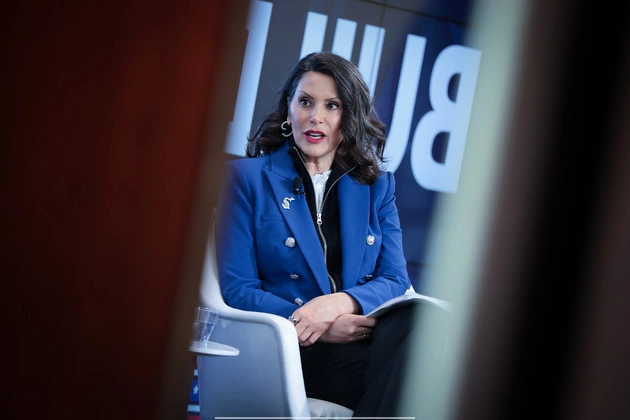
President Donald Trump held a positive meeting with Michigan Governor Gretchen Whitmer in the White House, echoing bipartisan sentiments shared by the governor during her recent Washington, D.C. speech.
Focus Keyword: bipartisan meeting
Whitmer highlighted concerns regarding the ongoing ice storm in northern Michigan, investments in the Selfridge Air National Guard Base near Detroit, and invasive fish in the Great Lakes. Of particular interest were discussions on tariffs, a hot topic of the day.
Trump expressed admiration for Whitmer’s leadership, even inviting her to the Oval Office while signing unrelated executive orders. He praised her work, calling her a valuable asset from Michigan.
While Whitmer’s spokesperson noted her surprise at the impromptu Oval Office appearance during Trump’s press conference, the meeting showcased a departure from typical partisan tensions.
Whitmer, a potential Democratic presidential candidate in 2028, emphasized her focus on Michigan’s interests rather than personal ambitions. Despite her rising political profile, Whitmer remains committed to her current role.
During the meeting, Trump initiated investigations into former aides, alleging misconduct. The president’s actions stirred controversy, with Whitmer’s spokesperson distancing the governor from the event’s implications.
Unlike many Democratic counterparts critical of Trump’s tariff policies, Whitmer adopted a more conciliatory stance. She emphasized shared goals with the president, particularly in bolstering Michigan’s manufacturing sector.
Addressing the tariff issue, Whitmer advocated for exemptions benefiting Michigan’s auto and energy industries. Notably, Trump’s tariff pause excluded auto imports, aligning with Whitmer’s priorities.
Despite past clashes over COVID-19 responses, characterized by Trump’s criticism of Whitmer, the recent meeting signaled a potential shift towards collaboration in Trump’s second term.
Whitmer’s pragmatic approach underscores the importance of cooperation, as she aims to secure beneficial outcomes for Michigan through engagement with the federal government.
As the political landscape evolves, Whitmer’s willingness to engage with Trump reflects a broader commitment to advancing Michigan’s interests, transcending traditional party divisions.











